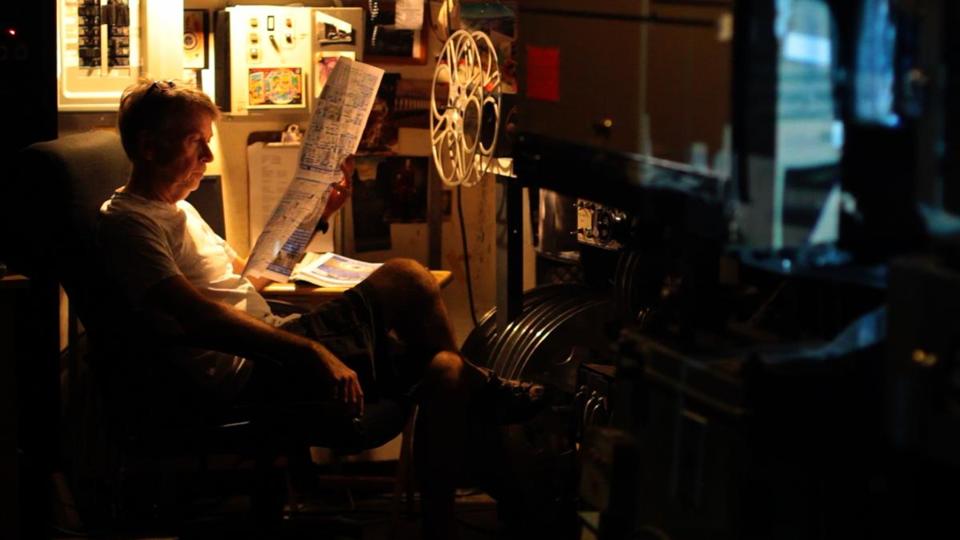Doc Corner: Nostalgia for the (Cinema) Light
 Tuesday, April 19, 2016 at 10:30AM
Tuesday, April 19, 2016 at 10:30AM Glenn here. Each Tuesday we bring you reviews and features on documentaries from theatres, festivals, and on demand. This week we're highlighting The Dying for the Light.
Nostalgia seeps through Peter Flynn’s sophomore film, The Dying of the Light. For good reason one might say. Like many of a certain generation who were too young to appreciate the glory of the mechanics of film projection when it was as common as day and night, I sometimes sound like a fetishist when it comes to talking about the flicker of celluloid as it whirs through its paces on its way to being projected onto the big screen.
Flynn, it would appear, is the same. His first film, Blazing the Trail: The O’Kalems in Ireland, was about people behind the camera in the 1910s, but his newest film is about the people behind the projector – the men and (infrequently) women who were in charge of spinning and threading the celluloid from reel to reel of film through projectors and onto cinema screens. (more after the jump)

Flynn could not have chosen a more ominous and actually rather misleading title. For while the subject matter at hand is often somber, as is the movie's tone thanks to a shadowed colour palate, it’s far from the funeral procession that the words “dying of the light” might suggest. In fact, cinephile audiences expecting a witch hunt of digital film exhibition will be sadly disappointed to see the new normal not portrayed as quite the big bad wolf as many like to paint it as, but rather the ultimate (some would say unfortunate) byproduct of an industry and a distribution method that simply couldn’t continue.
Like most films of this sort that try to condense some 100 years of history into 90 minutes, I found myself wishing for separate films about certain subjects. The brief minutes we’re given into the world of drive-in movies, an era that favored convenience over quality (as one interviewee suggests, this is a habit as American as that damned “Let’s All Go to the Lobby” jingle), are fascinating and I would have loved an expanded look at this time in American movie-going. Likewise, when Dorman Bermingham, the lone female interview subject from the so called golden age of film exhibition, begins to describe her hours of projection experience from within porno theatres, it’s sort of impossible to not want to know more from a period that remains one of the most ripe for exploration. And while it was refreshing to see the digital revolution treated without quite as much doom and gloom, I still yearned for a deeper analysis of how it has affected film-going and film-making in general.
Is The Dying of the Light for anybody who isn’t obsessed with the nitty gritty of film projection? That’s hard to say, but I am sceptical - I do love all of that stuff, so I found much of it interesting. I am also lucky to live in a city that still has an 80-year-old grand old movie palace, The Astor Theatre, that continues to play 35mm and 70mm prints (as regularly as they can) alongside digital so my thirst for the old hasn’t been entirely suffocated by the new. For cinephiles who wish they had the same luxury, The Dying of the Light will sing like a reel of film flicking through a spinning canister.
And, lastly, be careful if you do attempt to seek this film out – there is a big difference between this and the Nicolas Cage movie of the same name.
Release: Blink and you'll miss it, but it's playing a series of theatres across the country before a likely speedy trip to VOD that is it's (perhaps ironically) more logical home.
Oscar Chances: A critic organisation or two could give it a spotlight, but otherwise award season consideration seems unlikely.
 Doc Corner,
Doc Corner,  Film and Digital,
Film and Digital,  Reviews,
Reviews,  documentaries
documentaries 


Reader Comments